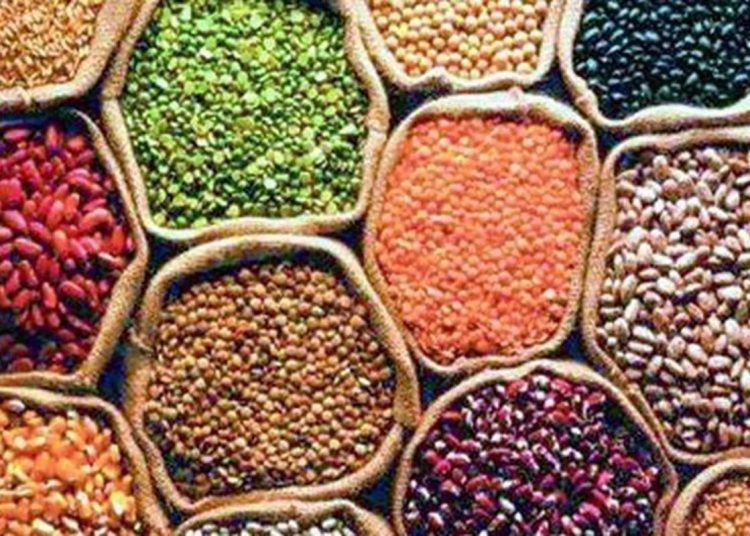 Between 2014-15 and 2019-20, Nafed procured 7.63 mt of pulses under MSP/PSS, from more than 38 lakh farmers.
Between 2014-15 and 2019-20, Nafed procured 7.63 mt of pulses under MSP/PSS, from more than 38 lakh farmers. Two back-to-back deficient monsoon years (2014-15 & 2015-16) resulted in sharp fall in production of pulses in the country—16.32 million tonnes (mt) in crop-year 2015-16, the lowest in the decade. In October 2015, tur or arhar dal retail prices rose to a record Rs 200/kg because of a huge demand-supply gap. All the other pulses, including chana, moong and urad saw a spike in prices.
The government increased the Minimum Support Prices (MSP) for pulses and stepped-up imports to control prices. India signed an MoU with Mozambique for importing pulses over the next five years. The government also created a 2 mt of buffer stock of pulses, under the Price Stabilization Scheme. The purpose was to ensure stability in prices as well as provide MSP to farmers under the Price Support Scheme (PSS)—specifically meant for pulses, oilseed and cotton growers.
A buffer stock of 2.05 mt was…















